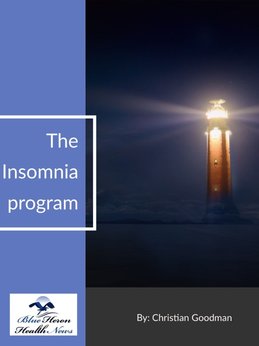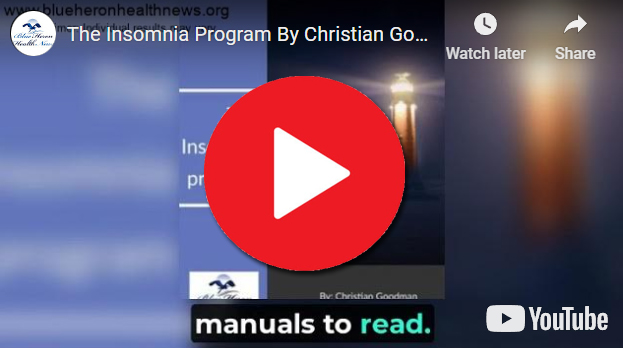
The Insomnia Program™ By Christian Goodman This program has been created by Christian Goodman, a natural health expert and sufferer of insomnia. He has used an audio program to let your fall sleep with the help of a bit of a hypnotic effect on your body.
What are the different types of insomnia?
Types of Insomnia
Insomnia, a prevalent sleep disorder, manifests in various forms, each with distinct characteristics and causes. Understanding the different types of insomnia is essential for effective diagnosis and treatment. Here is a comprehensive overview of the different types of insomnia:
1. Acute Insomnia
Description:
- Also known as short-term insomnia, acute insomnia is typically brief and often occurs in response to a specific situation.
- It lasts for a few days to a few weeks and is usually associated with stress or a traumatic event.
Causes:
- Significant life stress (job loss, change, death of a loved one, divorce).
- Acute illness.
- Environmental disturbances (noise, light, extreme temperatures).
Symptoms:
- Difficulty falling asleep.
- Frequent awakenings during the night.
- Waking up too early.
- Not feeling well-rested after a night’s sleep.
Treatment:
- Often resolves on its own once the triggering event is addressed.
- Sleep hygiene practices can help improve sleep during this period.
2. Chronic Insomnia
Description:
- Chronic insomnia is characterized by sleep difficulties that occur at least three times per week and last for at least three months.
- It can be primary (not linked to any other health condition) or secondary (associated with other medical issues).
Causes:
- Long-term stress.
- Medical conditions (arthritis, diabetes, heart disease).
- Mental health disorders (anxiety, depression).
- Medications that interfere with sleep.
Symptoms:
- Persistent difficulty falling asleep or staying asleep.
- Waking up too early and not being able to return to sleep.
- Daytime fatigue and sleepiness.
- Irritability, depression, or anxiety.
- Impaired concentration and memory.
Treatment:
- Cognitive Behavioral Therapy for Insomnia (CBT-I).
- Medications (prescribed by a healthcare provider).
- Addressing underlying medical or psychological conditions.
3. Onset Insomnia
Description:
- Onset insomnia involves difficulty initiating sleep.
- It can be a temporary or chronic condition.
Causes:
- Anxiety or stress.
- Excessive caffeine or stimulant intake.
- Poor sleep hygiene.
- Disruptions in circadian rhythms (jet lag, shift work).
Symptoms:
- Taking 30 minutes or more to fall asleep.
- Restlessness and anxiety about not being able to sleep.
- Reduced total sleep time.
Treatment:
- Relaxation techniques and stress management.
- Limiting caffeine and other stimulants.
- Establishing a regular sleep schedule.
- Creating a conducive sleep environment.
4. Maintenance Insomnia
Description:
- Maintenance insomnia is characterized by difficulty staying asleep.
- Individuals with this type of insomnia wake up during the night and struggle to fall back asleep.
Causes:
- Medical conditions that cause pain or discomfort.
- Psychological conditions such as anxiety and depression.
- Sleep disorders like sleep apnea or restless legs syndrome.
- Substance use (alcohol, nicotine).
Symptoms:
- Frequent awakenings during the night.
- Trouble returning to sleep after waking up.
- Feeling tired and unrested in the morning.
Treatment:
- Treating underlying medical or psychological conditions.
- Improving sleep hygiene.
- Medication may be prescribed if necessary.
5. Early Morning Awakening Insomnia
Description:
- This type of insomnia involves waking up too early and not being able to return to sleep.
- It is often linked to mood disorders like depression.
Causes:
- Depression and other mood disorders.
- Stress and anxiety.
- Changes in the sleep-wake cycle, especially in older adults.
Symptoms:
- Waking up an hour or more before the desired wake-up time.
- Difficulty falling back asleep.
- Daytime fatigue and sleepiness.
- Mood disturbances.
Treatment:
- Addressing underlying mood disorders.
- Cognitive Behavioral Therapy (CBT).
- Maintaining a consistent sleep schedule.
6. Behavioral Insomnia of Childhood (BIC)
Description:
- BIC is a type of insomnia that affects children, characterized by difficulties in falling asleep or staying asleep.
- It is often associated with learned behaviors and poor sleep associations.
Causes:
- Inconsistent bedtime routines.
- Negative sleep associations (reliance on parents to fall asleep).
- Anxiety and fear at bedtime.
Symptoms:
- Prolonged bedtime struggles.
- Nighttime awakenings with difficulty returning to sleep.
- Daytime behavioral problems due to insufficient sleep.
Treatment:
- Establishing consistent bedtime routines.
- Behavioral interventions to promote independent sleep.
- Parental education and support.
Conclusion
Insomnia is a multifaceted sleep disorder with various types, each requiring tailored approaches to treatment. Acute and chronic insomnia are distinguished by the duration and frequency of symptoms, while onset, maintenance, and early morning awakening insomnia are categorized based on the specific nature of sleep disruptions. Behavioral insomnia of childhood highlights the unique challenges faced by children with sleep issues. Understanding these different types of insomnia can guide individuals and healthcare providers in developing effective treatment plans to improve sleep quality and overall well-being.

The Insomnia Program™ By Christian Goodman This program has been created by Christian Goodman, a natural health expert and sufferer of insomnia. He has used an audio program to let your fall sleep with the help of a bit of a hypnotic effect on your body.